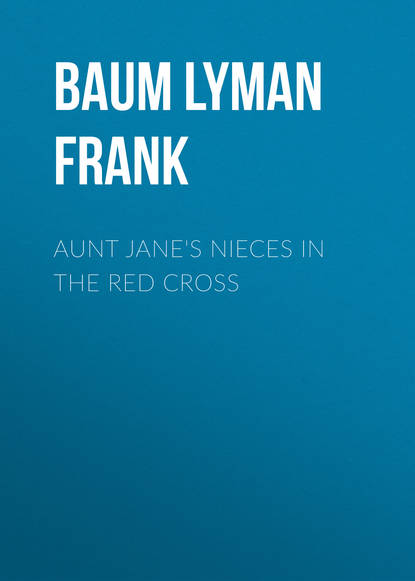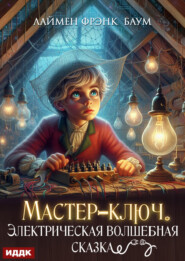По всем вопросам обращайтесь на: info@litportal.ru
(©) 2003-2025.
✖
Aunt Jane's Nieces in the Red Cross
Настройки чтения
Размер шрифта
Высота строк
Поля
"That's right," said Uncle John. "We don't want to be hampered by the necessity of advising with others."
"By the way, have you found a doctor?"
"Yes."
"A good one?" asked Maud quickly.
"Highly recommended, but homely as a rail fence," continued Patsy, as her uncle hesitated.
"That's nothing," said Ajo lightly.
"Nothing, eh? Well, wait till you see him," she replied. "You'll never look Doctor Gys in the face more than once, I assure you. After that, you'll be glad to keep your eyes on his vest buttons."
"I like him immensely, though," said Beth. "He is clever, honest and earnest. The poor man can't help his mutilations, which are the result of many unfortunate adventures."
"Sounds like just the man we wanted," declared Ajo, and afterward he had no reason to recall that assertion.
A week is a small time in which to equip a big ship, but money and energy can accomplish much and the news from the seat of war was so eventful that they felt every moment to be precious and so they worked with feverish haste. The tide of German success had turned and their great army, from Paris to Vitry, was now in full retreat, fighting every inch of the way and leaving thousands of dead and wounded in its wake.
"How long will it take us to reach Calais?" they asked Captain Carg eagerly.
"Eight or nine days," said he.
"We are not as fast as the big passenger steamers," explained young Jones, "but with good weather the Arabella may be depended upon to make the trip in good shape and fair time."
On the nineteenth of September, fully equipped and with her papers in order, the beautiful yacht left her anchorage and began her voyage. The weather proved exceptionally favorable. During the voyage the girls busied themselves preparing their modest uniforms and pumping Dr. Gys for all sorts of information, from scratches to amputations. He gave them much practical and therefore valuable advice to guide them in whatever emergencies might arise, and this was conveyed in the whimsical, half humorous manner that seemed characteristic of him. At first Gys had shrunk involuntarily from facing this bevy of young girls, but they had so frankly ignored his physical blemishes and exhibited so true a comradeship to all concerned in the expedition, that the doctor soon felt perfectly at ease in their society.
During the evenings he gave them practical demonstrations of the application of tourniquets, bandages and the like, while Uncle John and Ajo by turns posed as wounded soldiers. Gys was extraordinarily deft in all his manipulations and although Maud Stanton was a graduate nurse – with little experience, however – and Beth De Graf had studied the art for a year or more, it was Patsy Doyle who showed the most dexterity in assisting the doctor on these occasions.
"I don't know whether I'll faint at the sight of real blood," she said, "but I shall know pretty well what to do if I can keep my nerve."
The application of anaesthetics was another thing fully explained by Gys, but this could not be demonstrated. Patsy, however, was taught the use of the hypodermic needle, which Maud and Beth quite understood.
"We've a big stock of morphia, in its various forms," said the doctor, "and I expect it to prove of tremendous value in comforting our patients."
"I'm not sure I approve the use of that drug," remarked Uncle John.
"But think of the suffering we can allay by its use," exclaimed Maud. "If ever morphia is justifiable, it is in war, where it can save many a life by conquering unendurable pain. I believe the discovery of morphine was the greatest blessing that humanity has ever enjoyed. Don't you, Doctor Gys?"
The one good eye of Gys had a queer way of twinkling when he was amused. It twinkled as the girl asked this question.
"Morphine," he replied, "has destroyed more people than it has saved. You play with fire when you feed it to anyone, under any circumstances. Nevertheless, I believe in its value on an expedition of this sort, and that is why I loaded up on the stuff. Let me advise you never to tell a patient that we are administering morphine. The result is all that he is concerned with and it is better he should not know what has relieved him."
On a sunny day when the sea was calm they slung a scaffold over the bow and painted a big red cross on either side of the white ship. Everyone aboard wore the Red Cross emblem on an arm band, even the sailors being so decorated. Uncle John was very proud of the insignia and loved to watch his girls moving around the deck in their sober uniforms and white caps.
Jones endured the voyage splendidly and by this time had convinced himself that he was not again to be subject to the mal-de-mer of his first ocean trip. As they drew near to their destination an atmosphere of subdued excitement pervaded the Arabella, for even the sailors had caught the infection of the girls' eagerness and were anxious to get into action at the earliest moment.
It was now that Uncle John began to busy himself with his especial prize, a huge motor ambulance he had purchased in New York and which had been fully equipped for the requirements of war. Indeed, an enterprising manufacturer had prepared it with the expectation that some of the belligerent governments would purchase it, and Mr. Merrick considered himself fortunate in securing it. It would accommodate six seriously wounded, on swinging beds, and twelve others, slightly wounded, who might be able to sit upon cushioned seats. The motor was very powerful and the driver was protected from stray bullets by an armored hood.
In addition to this splendid machine, Mr. Merrick had secured a smaller ambulance that had not the advantage of the swinging beds but could be rushed more swiftly to any desired location. Both ambulances were decorated on all sides with the emblem of the Red Cross and would be invaluable in bringing the wounded to the Arabella. The ship carried a couple of small motor launches for connecting the shore with her anchorage.
They had purposely brought no chauffeurs with them, as Uncle John believed foreign drivers, who were thoroughly acquainted with the country, would prove more useful than the American variety, and from experience he knew that a French chauffeur is the king of his profession.
During the last days of the voyage Mr. Merrick busied himself in carefully inspecting every detail of his precious vehicles and explaining their operation to everyone on board. Even the girls would be able to run an ambulance on occasion, and the boy developed quite a mechanical talent in mastering the machines.
"I feel," said young Jones, "that I have had a rather insignificant part in preparing this expedition, for all I have furnished – aside from the boat itself – consists of two lots of luxuries that may or may not be needed."
"And what may they be?" asked Dr. Gys, who was standing in the group beside him.
"Thermos flasks and cigarettes."
"Cigarettes!" exclaimed Beth, in horror.
The doctor nodded approvingly.
"Capital!" said he. "Next to our anodynes and anaesthetics, nothing will prove so comforting to the wounded as cigarettes. They are supplied by nurses in all the hospitals in Europe. How many did you bring?"
"Ten cases of about twenty-five thousand each."
"A quarter of a million cigarettes!" gasped Beth.
"Too few," asserted the doctor in a tone of raillery, "but we'll make them go as far as possible. And the thermos cases are also valuable. Cool water to parched lips means a glimpse of heaven. Hot coffee will save many from exhaustion. You've done well, my boy."
CHAPTER V
NEARING THE FRAY
On September twenty-eighth they entered the English Channel and were promptly signalled by a British warship, so they were obliged to lay to while a party of officers came aboard. The Arabella was flying the American flag and the Red Cross flag, but the English officer courteously but firmly persisted in searching the ship. What he found seemed to interest him, as did the papers and credentials presented for his perusal.
"And which side have you come to assist?" he asked.
"No side at all, sir," replied Jones, as master of the Arabella. "The wounded, the sick and helpless, whatever uniform they chance to wear, will receive our best attention. But we are bound for Calais and intend to follow the French army."
The officer nodded gravely.
"Of course," said he, "you are aware that the channel is full of mines and that progress is dangerous unless you have our maps to guide you. I will furnish your pilot with a diagram, provided you agree to keep our secret and deliver the diagram to the English officer you will meet at Calais."
They agreed to this and after the formalities were concluded the officer prepared to depart.
"I must congratulate you," he remarked on leaving, "on having the best equipped hospital ship it has been my fortune to see. There are many in the service, as you know, but the boats are often mere tubs and the fittings of the simplest description. The wounded who come under your care will indeed be fortunate. It is wonderful to realize that you have come all the way from America, and at so great an expense, to help the victims of this sad war. For the Allies I thank you, and – good-bye!"
They remembered this kindly officer long afterward, for he proved more generous than many of the English they met.
Captain Carg now steamed ahead, watching his chart carefully to avoid the fields of mines, but within two hours he was again hailed, this time by an armored cruiser. The first officer having vised the ship's papers, they were spared the delay of another search and after a brief examination were allowed to proceed. They found the channel well patrolled by war craft and no sooner had they lost sight of one, than another quickly appeared.
At Cherbourg a French dreadnaught halted them and an officer came aboard to give them a new chart of the mine fields between there and Calais and full instructions how to proceed safely. This officer, who spoke excellent English, asked a thousand questions and seemed grateful for their charitable assistance to his countrymen.
"You have chosen a dangerous post," said he, "but the Red Cross is respected everywhere – even by the Germans. Have you heard the latest news? We have driven them back to the Aisne and are holding the enemy well in check. Antwerp is under siege, to be sure, but it can hold out indefinitely. The fighting will be all in Belgium soon, and then in Germany. Our watchword is 'On to Berlin!'"

















